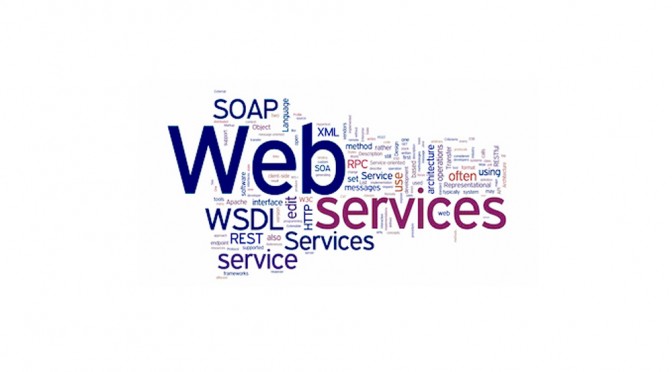Web service

Web service integration has become a necessity today as they allow dynamic interaction with clients and customers. It also makes simple for enterprises to do business with partners and customers. The best part is web services integration is low cost, and the simplicity of the technology and its pervasiveness allows the staff to do more with fewer tools. Web services can be used for different types of applications. They support any platform, any programming language making them versatile in the world of e-commerce. Web services integration can help you achieve different business goals that include managing your legacy applications, solving tactical problems and reducing development costs.
If you are a beginner or planning to integrate web services, it is quite likely you won’t be having an experience in designing web services. And this has prompted us to provide you with a definitive guide to Web Services.
Types of Web services
On a technical level, web services can be classified into four types – RESTful services, SOAP, JSON and “BIG” web services.
BIG web Services
The “Big” web services type use XML messages that conform to Simple Object Access Protocol (SOAP) standard. The XML language defines the message format and the message architecture. In such a system, the machine-readable description of the operations is written in WSDL (Web services description language). The interfaces are syntactically defined in XML language.
The combined use of WSDL interface definition language and the SOAP message format has been widely adopted by the enterprises. Development tools like NetBeans IDE work to reduce the complexity of designing web service applications.
RESTful web services
Web services based on REST architecture are known as RESTful services. REST (Representational State Transfer) is more like a design concept. It is more suited for basic and ad-hoc integration. RESTful web services can be integrated with HTTP. Unlike SOAP, they do not require WSDL service or XML messages. The RESTful web services function well with well know W3C standards and other Internet Engineering Task Force (IETF) standards like HTTP, URI, MIME, and XML. When building a RESTful web service, you are not limited to picking XML to represent data, you can also pick up JSON.
JSON web services
JSON and XML are equivalent. However, JSON has more efficient coding mechanism than XML or SOAP. The JSON messages are also smaller in size when compared to the equivalent of XML message. JSON web services are loosely coupled. JSON can be easily integrated with JavaScript applications which allow JSON web services to function seamlessly with mobile applications. The Request-response procedure of JSON and SOAP is almost similar.
SOAP web services-
The acronym stands for Simple Object Access Protocol. It is a W3C recommended communication protocol based on XML. Since SOAP is platform independent, it can be used to encode a message in XML that can be used to call functions in other applications SOAP can also define how the other computer can send the response. SOAP leverages the HTTP and SMTP protocol technologies and also supports other web communication protocols. The result is SOAP procedure calls can also pass through firewalls thereby ensuring uninterrupted communication between applications.
Advantages of Web services
- Works seamless with other application and technologies
- Sharing of data and services
- No data redundancy
- Decreased execution time
- Reduction in data errors
- Increases organizational efficiency
- Remote access
- Helps your organization stay agile
Web services expand your World Wide Web Infrastructure by offering different ways to connect with other software applications. Applications access Web Services using different data formats and web protocols such as SOAP, XML, and HTTP without worrying about how each web service is implemented. You need to implement web services in order to reap all of the productivity benefits today. The phone support is dying and today’s clients expect a 24/7 self-service demand consoles even from smaller companies. If you fail to meet this demand, you are likely to lose clients and business. Contact Intellectyx today and we will find the productivity loopholes to ensure your business always has the competitive edge.
